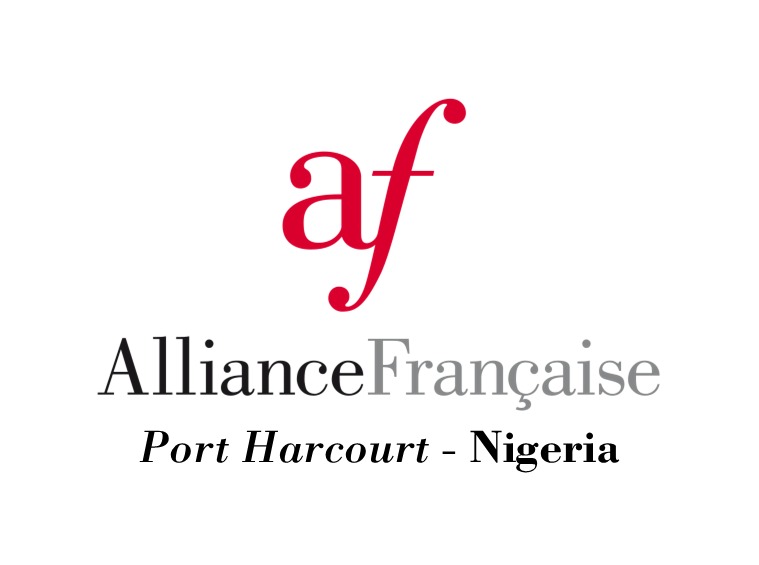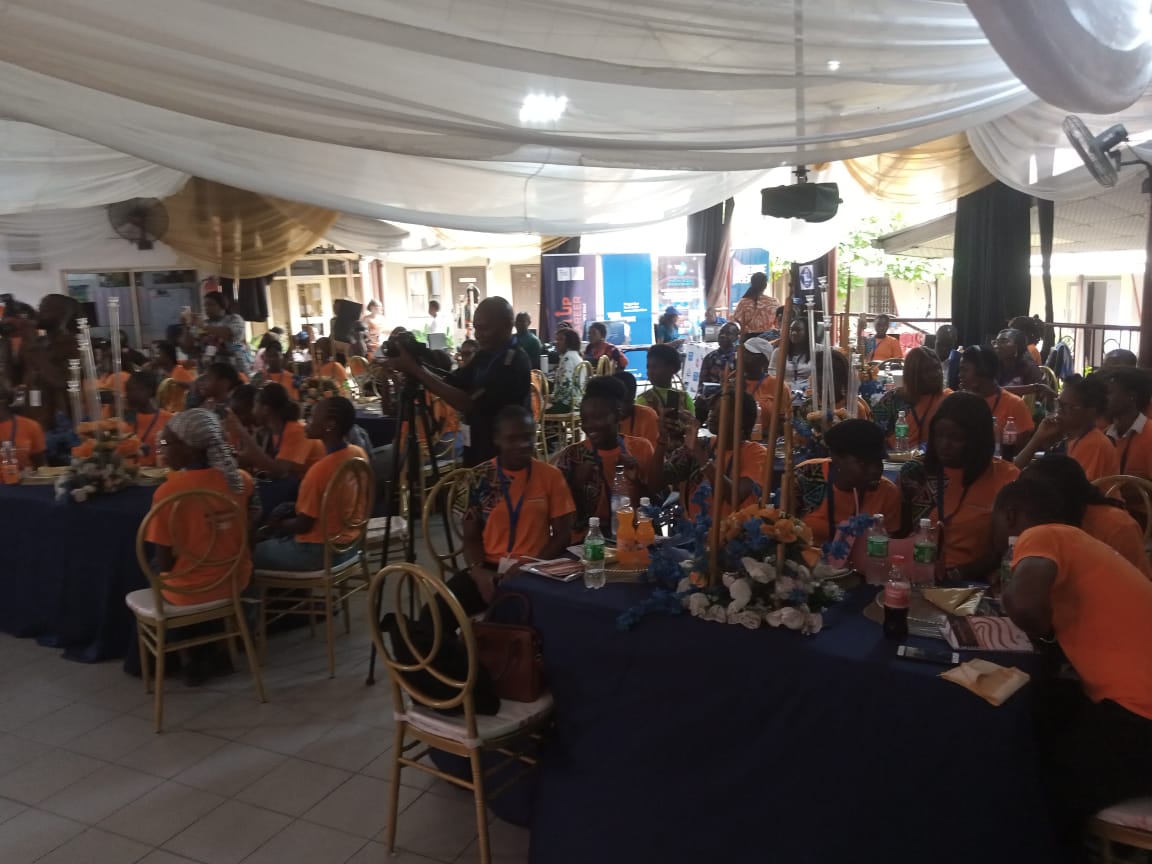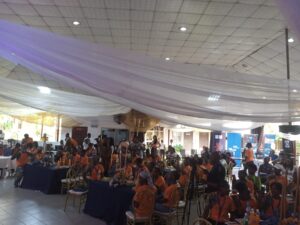Entertainment
Nollywood: Cradle Of African Movies
The Cinema of Nigeria,
often referred to as Nolloywood consists of films produced in Nigeria: Its history dates back to as early as the late 19th century and into the colonial era in early 1900s. The history and development of the Nigerian motion picture industry is sometimes generally classified in four main eras: the colonial era, Golden Age, Video film era and the emerging New Nigerian Cinema.
Film as a medium first arrived Nigeria in the late 19th Century, in the form of peephole viewing of motion picture devices. These were soon replaced in early 20th century with improved motion picture exhibition devices, with the first set of films screened at the Glover Memorial Hall in Lagos from 12 to 22 August 1903. The earliest feature film made in Nigeria is the 1926’s “palaver” produced by Geoffrey Barkas; the film was also the first film ever to feature Nigerian actors in a speaking role.
As at 1954, mobile cinema vans played to at least 3.5 million people in Nigeria, and films being produced by the Nigerian film unit were screened for free at the 44 available cinemas. The first film entirely copyrighted to the Nigerian film unit is “Fincho” (1957) by Sam Zebba; which is also the first Nigerian film to be shot in colour. After Nigeria’s independence in 1960, the cinema business rapidly expanded, with new cinema houses being established.
As a result, Nigerian content in theatres increased in the late 1960s into the 1970s, especially productions from Western Nigeria, owing to former theatre practitioners such as Hubert Ogunde and Moses Olaiya transitioning into the big screen. In 1972, the Indigenization Decree was issued by Yakubu Gowon which demands the transfer of ownership of about a total of 300 film theatres from their foreign owners to Nigerians, which resulted in more Nigerians playing active roles in the cinema and film.
The oil boom of 1973 through 1978 also contributed immensely to the spontaneous boost of the cinema culture in Nigeria, as the increased purchasing power in Nigeria made a wide range of citizens to have disposable income to spend on cinema going and and home television sets.
After several moderate performing films, “Papa Ajasco” (1984) by Wale Adenuga became the first blockbuster, grossing approximately N61,000 in three days. A year later “Mosebolatan” (1985) by Moses Olaiya also went ahead to gross N107,000 in five days. After the decline of the Golden era, Nigeria film industry experienced a second major boom in the 1990s supposedly marked by the release, of the direct to video film “living in Bondage” (1992).
The industry peaked in the mid 2000s to become the second largest film industry in the world in terms of the number of annual film productions, placing it ahead of the United States and behind only India. They started dominating screens across the African Continent and by extension, the Caribbeans and the diaspora with the movies significantly influencing cultures, bordering on theories such as the “Nigerialisation of Africa”. Since mid-2000s, the Nigeria Cinema has undergone some restructuring to promote quality and professionalism , with The “Figurine” (2009) widely regarded as marking the major turn around of contemporary Nigerian Cinema. There have since been a resurgence cinema establishments, and a steady return of the cinema culture in Nigeria. As of 2013, Nigerian cinema is rated as the third most valuable film industry in the world based on its worth and revenues generated.
As at 2004, at least four to five films were produced everyday in Nigeria. Nigerian movies now already dominate television screens across the African continent and by extension, the diaspora. The film actors also became household names across the continent, and the movies have significantly influenced cultures in many African nations; from way of dressing to speech and usage of Nigerian slangs. This was attributed to the fact that Nigerian films told “relatable” stories, which made foreign films to “gather dusts” on the shelves of video stores even though they cost much less.
According to the Filmmakers Cooperative of Nigeria, every film in Nigeria had a potential audience of 15 million people in Nigeria and about 5 million outside Nigeria.
In no time, the industry became the third largest producer of films in the world. However, this didn’t translate to an overtly commercial film industry when compared to other major film hubs across the world; the worth of the industry was approximately at just about us $250 million, since most of the films produced were cheaply made.
The film industry regardless became a major employer of labour in Nigeria. As at 2007, with a total number of 6,841 registered video parlours and an estimated of about 500,000 unregistered ones, the estimated revenue generated by sales and rentals of movies in Lagos State alone was estimated to be N804 million (US $ 5million) per week, which adds up to an estimated N33.5 billion (US $209 million) revenue for Lagos State per annum. Approximately, 700,000 discs were sold in Alaba market per day with the total sales revenue generated by the film industry in Nigeria estimated at N522 billion (US $ 3bilion) per annum.
Several grants have been launched by the Nigerian government in order to support quality content in Nigerian film. In 2006, project Nollywood was launched by the Nigerian government in conjunction with Ecobank. The project provided N100 million (US $781 thousand) to Nigeria film makers to produce high quality films and to fund a multimillion naira distribution network across the country.
In 2010, President Goodluck Jonathan launched a N30 billion (US $200 million) “Creative and Entertainment Industry Intervention Fund,” financed by Bank of Industry (BOI) in conjunction with Nigeria Export and Import (NEXIM) bank.
In 2013, A smaller new grant of N3 billion (US $20 million) was awarded once again solely for Nollywood, and specifically for the production of high quality films and to sponsor filmmakers for formal training in film schools. Also in 2015, bank of industry launched another Nolly -fund programme for the purpose of giving financial support in form of loans to film producers.
By the end of 2013, the film industry reportedly hit a record breaking revenue of N1.72 trillion (US $ 11 billion). As of 2014, the industry was worth N853.9 billion (US $ 5.1 billion) making it the third most valuable film industry in the world, behind the United States and India. It contributed, about 1.4% to Nigeria’s economy, this was attributed to the increase in the number of quality films produced and more formal distribution methods.
Among the organizations and events in the industry include: Actors Guild of Nigeria (AGN) which regulates and represents the affairs of the actors in Nigeria and abroad, African Movie Academy Awards (AMAA). Created in 2005, it is considered to be the most prestigious award in Nollywood and on The African Content, African Magic Viewers Choice Awards (AMVCA), Nollywood Movies Award (NMA) and Best of Nollywood Awards BON.
Additional reports from Naija.com
Entertainment
World Music Day: Alliance Française Port Harcourt Showcases Talents

The Garden City of Rivers State Port Harcourt at the weekend joined other parts of the world to celebrate the World Music Day, 2025, as Alliance Française showcases talents.
The event which is internationally known as Fête de la musique was held at cultural hall of the Alliance Française was a remarkable concert with memorable experience.
The event brought together music lovers, students, Artistes and members of the community For an exciting evening live performances and cultural exchange.
The Tide Entertainment reports that the world Music Day, which was created 1982 in France by the then Minister of culture, Jack Lang, ‘ Fête de la Musique’ is now celebrated in more than 100 countries every 21st June, marking the first day of summer with free concerts and musical showcases in public spaces.
In Port Harcourt, the Alliance Française honoured the tradition by spotlighting four(4) emerging artistes offering a platform to young talents shaping the city’s contemporary scene.
The audience enjoyed an unforgettable moments as they were entertained by the powerful performances from Preach A, who is known for blending fitness culture with spoken words and rhythm.
Also, artiste Emmayany delivering a vibrant fusion of afrobeat and afro pop. A singer, song writer and a performing artiste with a distinct sound.
Others were Amarachy Uko, a sensational singer with passion for soul , R&B, pop music and afrobeat.
While DJ Prospel closed the night with an energetic DJ set that got the entire hall dancing.
Earlier, the Director, Alliance Française, Port Harcourt Mrs Marina Lacal high lighted the mission of the Alliance Française saying that the event was more than a concert.
According to her, the event was put together by the Alliance Française to promote cultural diversity and foster artistic expression by connecting a long standing French tradition with creativity of the local music scene, adding that the event offerers an avenue for dialogue between culture and generations.
She stated that the event is used to promote professional and bring amateur artistes to limelight via the platform of the Alliance Française which is aimed at promoting the French Language through cultural heritage.
She explained that the celebration is also a broader series of Fête de la musique activities organized by the 10 Alliance Française across Nigeria in sync with concerts held in France and around the world simultaneously.
She further noted that the occasion reaffirms the role of Alliance Française as a cultural bridge, one where French heritage meets the pulses of Nigerian youth.
It would be recalled that no fewer than 19 artistes applied to perform at the event in Port Harcourt, but only four got approval for appearance.
Entertainment
PMAN Set To Implement Performance Levy ‘Tomorrow

The Governor of the Performing Musicians Employer’s Association of Nigeria (PMAN), Rivers State chapter, Comrade Moses Mabadeje popularly known as Mozy B said that the body has announced plans to implement performance Levy on artistes in the state with effect from 21st June.
This was carried in a statement released to The Tide Entertainment, yesterday by the Deputy Governor of the association, Comrade Abiye Howells.
According to the Governor, the announcement was made by PMAN, the only governing body that regulates the music profession in Nigeria, as authorized by the Government of Nigeria, in line with the Trade Union Act.
He stated that those affected by the Levy include (Non members)bands, groups, Hotels, Bars, lounges, Event Centres, show organizers, promoters and other stakeholders hosting events which feature live music performances within the State.
However, the Levy does not apply to members of the Performing Musicians Employer’s Association of Nigeria. (PMAN).
Comrade Moses Mabadeje, explained that this drive is aimed at financing the association and supporting the welfare and interest of musicians as outlined in Article 8 of the PMAN constitution as amended (2023). Consequently, a PMAN task force has been set up to enforce and swing into action to effect this move.
He further said that event organizers, promoters and owners of event centers are expected to comply with this regulation as the Governor has urged stakeholders to collaborate with the association to ensure the successful implementation of the levy and the peaceful co-existence between PMAN and Stockholders.
Nancy Briggs
Entertainment
“French Up Your Career” PH, 2025 :Consul General Of France Harps On Proficiency In French

The Consul, General of France in Nigeria, Laurent Favier has encouraged French Learners to improve their skills on the language, as there are lots of opportunities up for grabs on the job market with fluency in French Language, saying that there are many other career paths which are often less well known to learners of French.
 Participants at the “French Up Your Career” event held in Port Harcourt.
Participants at the “French Up Your Career” event held in Port Harcourt.
Favier who disclosed this during the just concluded third edition of the seminar tagged “French Up Your Career” organized by Alliance
Française, Port Harcourt explained that learning French doesn’t mean adding a language to your resume. It rather provides learners with new opportunities. Irrespective of their area of interest, be it diplomatic and International relations, international development, translation and Interpretation or journalism.
According to the Consul General, it was important to create awareness for young Nigerians in Port Harcourt who desire to have better understanding of how been fluent in French can create diverse career opportunities for users of the languages in Nigeria and the world at large, emphasizing that proficiency in French could possibly make learner a bridge between Nigeria and fast-developing regions.
“You previously heard this morning about how you can improve your French skills. This afternoon you will discover how being fluent in French can provide a significant edge on the job market and lead to professional careers that you may not have even considered before,”
“This event comes at the right time, as it launches the celebration of the richness and diversity of French-speaking cultures, which will mobilize us for more than a month throughout Nigeria and alongside other French-speaking countries,” Favier added.
He further highlighted that French is spoken by over 300 million people across the world, saying that, it’s one of the official languages of the United Nations, the European Union, and the African Union.
“There are many neighbouring African countries to Nigeria ,who have French as one of their primary languages of communication including Cameroon, Chad, and the Democratic Republic of the Congo. So, what does this mean for you as students here in Nigeria?” He asked
“These sectors in which the French Embassy is often mobilized are the business and marketing field for example, as French is often the preferred language in many multinational companies, particularly those in the energy, oil and telecommunications sectors. I’m thinking as well in technology and IT,” he said
He noted that French-speaking countries in Africa are investing heavily in tech, innovation, and infrastructure, revealing that companies in Tech are looking for bilingual professionals to assist with software localization, customer support, and managing projects in French-speaking regions.
“The French embassy is not only mobilized to help learners discover promising sectors. We are also providing our support and expertise in
training teachers and optimizing university programs,” he summed up
Also, the linguistics cooperation attaché, French Embassy in Nigeria, Magaly Losange, who also gave a lecture at the seminar, in an interview with Newsmen said that the main purpose of the seminar was to be more informative and supportive to those who want to make a skill out of French Language,saying that as the linguistics cooperation attaché of the French Embassy it is her duty to promote French language through culture.
She cited traditional stereotypes as a major challenge affecting the growth and development of French in Nigeria, as school, teachers at the primary and secondary level in most cases teach French using the traditional way, where students learn French, but could not put words and grammar together as a skill for communicate.
“French is important. I don’t see French as colonization, l see French as a key to embrace globalization, l hope that learners will be inspired and ready to embrace the global village,” Losange said.
She however said that the French Embassy is working to ensure that equipments to facilitate the learning of French is put in place to enable learners improve their skills fast, which in two to three years learners should be able to communicate with French, advising learners to be intentional with learning the language, through social media and other workable devices to advance their skills for certification and better opportunities.
Highlight of the event which had about 250 participants in attendance was the eloquence award ceremony where students were awarded for their eloquence in French language by the Director, Alliance Française Port Harcourt, Mrs.Marina Lacal alongside the Linguistics cooperation attaché of the French Embassy in Nigeria, Magaly Losange.
After two edition of the seminar it was the turn of the Alliance Française, Port Harcourt to host the Third edition.
It would be recalled that the first edition of ” “French Up Your Career” event was organized at the Alliance Française Lagos on October 23, the second one at UNILAG on November 24, 2024 respectfully.

